Dive into experiential learning at Yale-NUS
At Yale-NUS College, learning is more than reading papers, writing essays and listening to lectures. A key component of the educational model at the College is experiential learning where students interact with the subject matter on hand and the world around them. Yale-NUS courses such as The Psychology of Mindfulness and Experimental Methods in Physical Sciences give us a taste of the experiential nature of the College’s distinctive curriculum.
Since its introduction in 2017, Associate Professor of Social Sciences (Psychology) Shian-Ling Keng has been consistently incorporating experiential learning to The Psychology of Mindfulness course. This was driven by the objective to “teach a range of experiential mindfulness practices in addition to learning about the academic and research literature pertaining to mindfulness,” explained Assoc Prof Keng.
A recent addition to the course is a complementary, eight-part series of mindfulness sessions for students by the College’s mindfulness instructor Ho-Gia Anh-Le. Inspired by a conversation with former colleague, Naropa University Professor of Religious Studies Judith Simmer-Brown, Assoc Prof Keng integrated this component into her course last year as it “allowed students to not only deepen their engagement with mindfulness as an academic topic, but as a deep, personal reflection journey”.
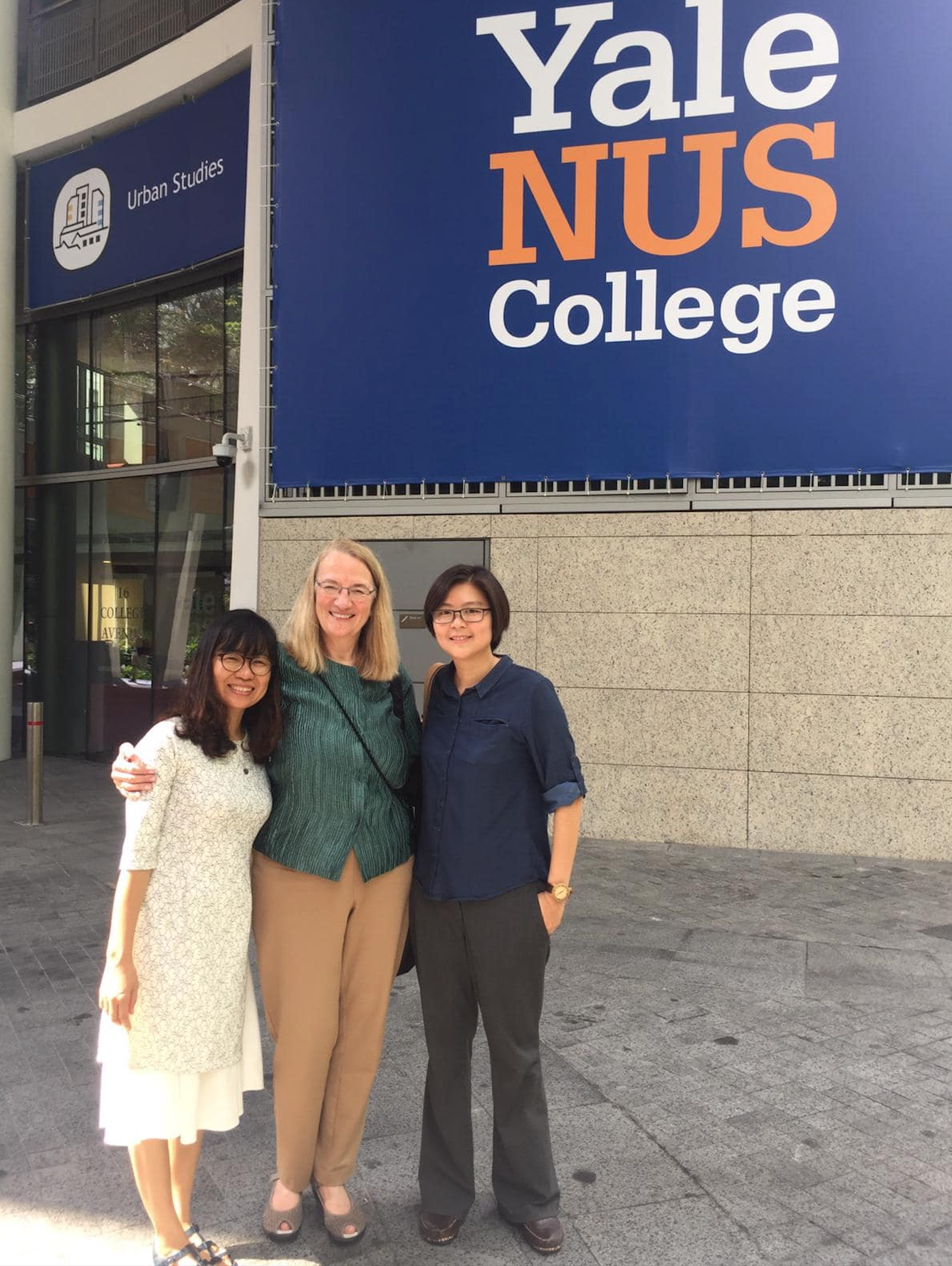 (Left to right) Ho-Gia Anh-Le, Professor Judith Simmer-Brown, and Assoc Prof Shian-Ling Keng, at Yale-NUS in 2019. Image provided by Assoc Prof Shian-Ling Keng.
(Left to right) Ho-Gia Anh-Le, Professor Judith Simmer-Brown, and Assoc Prof Shian-Ling Keng, at Yale-NUS in 2019. Image provided by Assoc Prof Shian-Ling Keng.
There are many reasons to enjoy these practical elements. For Yi Jing Teoh (Class of 2023), “the sessions led by Anh-Le [allow them to] have dedicated time every week to focus on [their] wellbeing”.
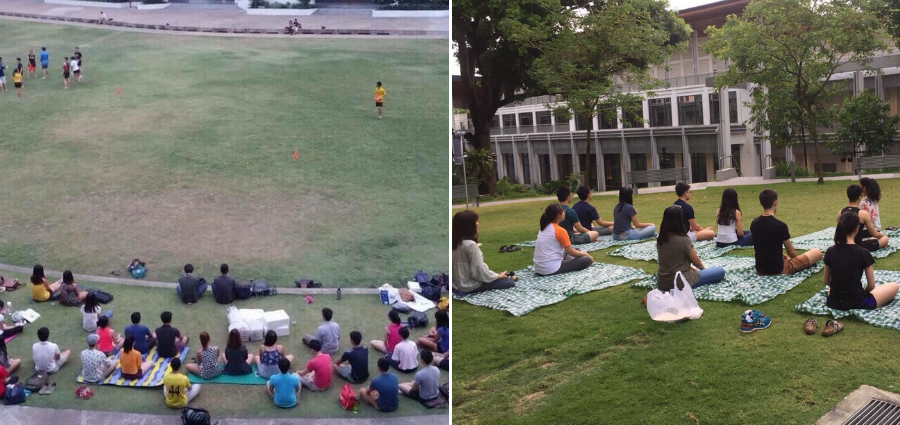 Mindfulness flash mobs held across the Yale-NUS & NUS campus in previous years. Image provided by Assoc Prof Shian-Ling Keng.
Mindfulness flash mobs held across the Yale-NUS & NUS campus in previous years. Image provided by Assoc Prof Shian-Ling Keng.
Typically, at the end of the semester, students would organise a mindfulness flash mob where students and faculty come together for a mindfulness activity, such as meditation in a common space to share what they have learnt with the College community. Assoc Prof Keng shared that students who had taken this course, found the added element of experiential learning very beneficial and hoped that it would continue in the curriculum for other students to experience.
“Experiential, hands-on components are extremely important in facilitating learning because [students] can see how evidence-based clinical research can be translated into real applications and outcomes,” shared Meryl Yu (Class of 2022). “It certainly helps me appreciate the profound benefits of mindfulness in alleviating stress and improving one’s quality of life when I am able to witness it enacted in my own life.”
Similarly, experiential projects are a formative part of a student’s learning in Experimental Methods in Physical Sciences taught by Assistant Professor of Science (Physics) Ben Olsen. Co-designed by Assistant Professor of Science (Chemistry) Stanislav Presolski, Asst Prof Olsen tapped into his prior experience designing scientific instruments in a quantum sensing technology start-up company in the United States when conceiving this course.
“Being aware of real-world applications, we designed this course to closely emulate the entire engineering design process,” said Asst Prof Olsen. “Students are tasked to define specific goals for the instrument, make computer-aided designs, custom manufacture individual parts, and ultimately integrate everything together and test the reliability of the instrument.”
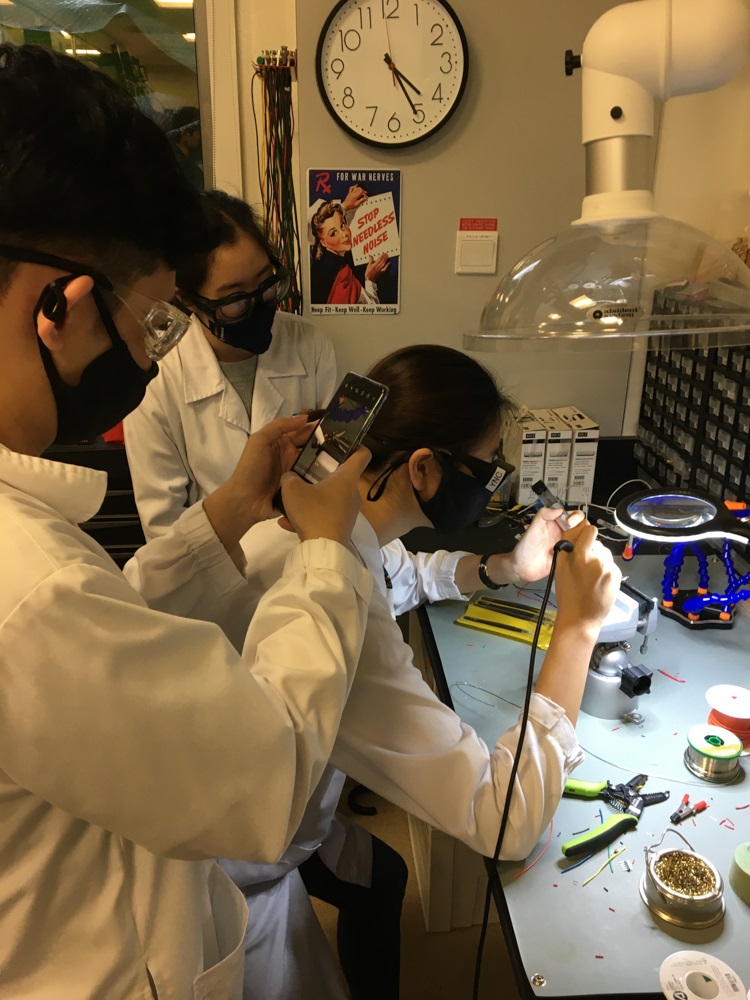 Students in Experimental Methods in Physical Sciences course. Image provided by Asst Prof Ben Olsen.
Students in Experimental Methods in Physical Sciences course. Image provided by Asst Prof Ben Olsen.
In their final semester, students are required to design and build their own scientific prototype. “While we have autonomy and creative freedom over our projects, the curriculum ensures that our results remain realistic as well,” noted Zirdi Syukur (Class of 2023) who built an optical probe to quickly assess dental health with his course mate Mahir Amer (Class of 2022) when they took this course last semester.
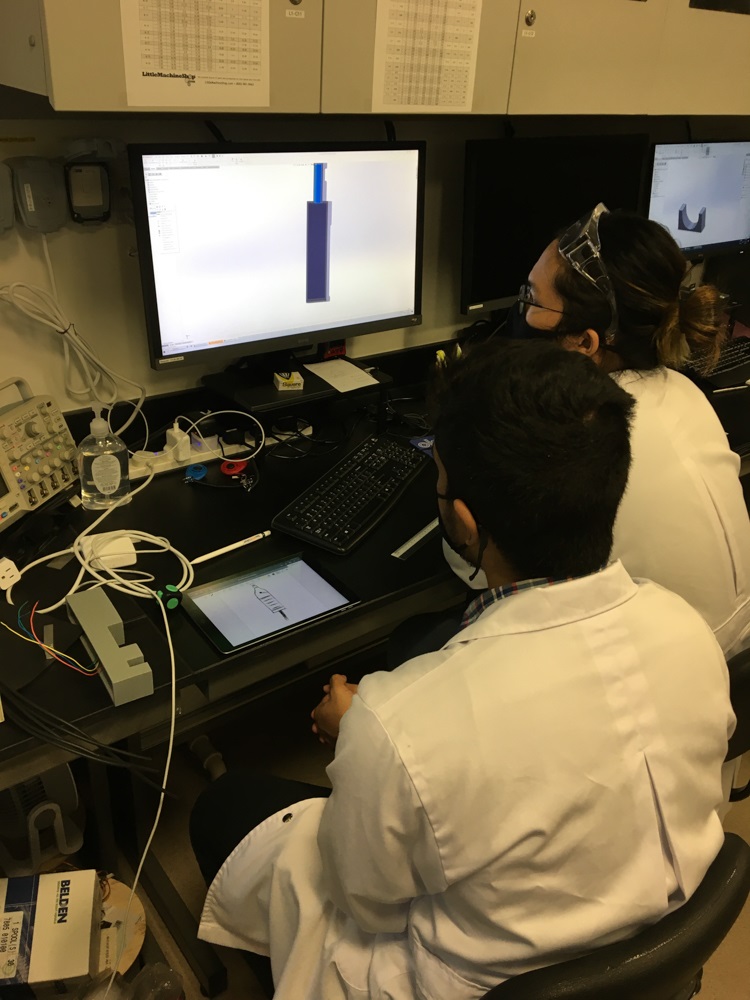 (Left to right) Mahir Amer (Class of 2022) and Zirdi Syukur (Class of 2023) working on their optical probe to assess dental health. Image provided by Mahir Amer.
(Left to right) Mahir Amer (Class of 2022) and Zirdi Syukur (Class of 2023) working on their optical probe to assess dental health. Image provided by Mahir Amer.
Creating prototypes from scratch is a unique and informative experience for the students as they can actualise their ideas by utilising resources, such as the 3D printer in the Fabrication Studios, soldering equipment in the Physics Lab at the Science Centre, and even test samples at the National University of Singapore’s School of Dentistry.
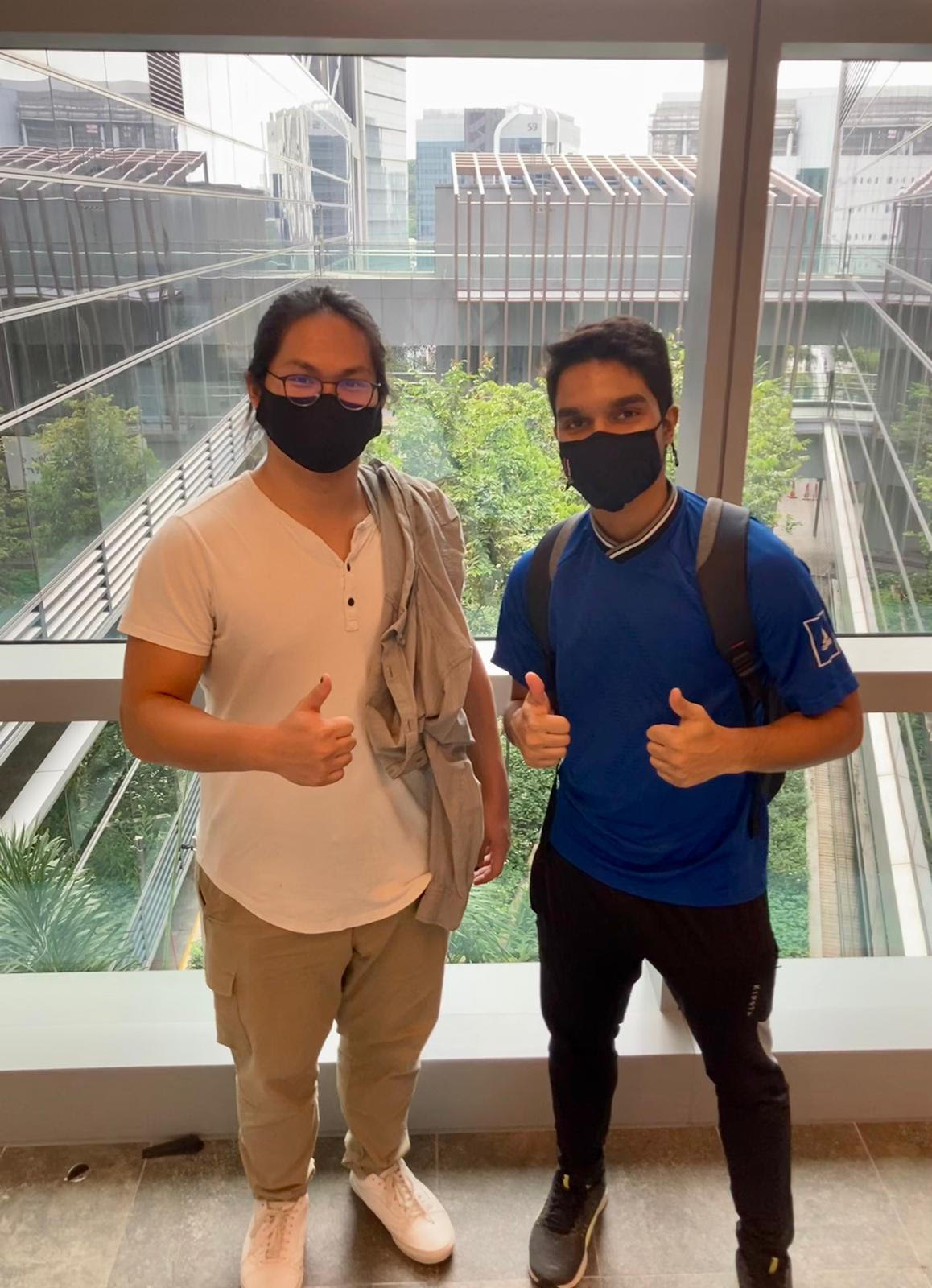 (Left to right) Zirdi Syukur and Mahir Amer. Image provided by Mahir Amer.
(Left to right) Zirdi Syukur and Mahir Amer. Image provided by Mahir Amer.
As Mahir can attest, experiential learning is often a rewarding experience for students as it adds practical know-how to their theoretical understanding. “From conceiving the idea and watching the device emerge from the 3D printer to purchasing Coca-Cola to induce artificial dental decay – I loved the entire experience. It was undoubtedly one of the highlights of my semester,” remarked Mahir.





